Ryanair inks EUR 340mn deal to triple traffic at Modlin Airport
The Irish low-cost carrier will invest approximately EUR 340mn, its largest-ever commitment in Poland. Annual traffic at Modlin is expected to increase from 1.5mn to over 5mn by 2030.
The Irish low-cost carrier will invest approximately EUR 340mn, its largest-ever commitment in Poland. Annual traffic at Modlin is expected to increase from 1.5mn to over 5mn by 2030.
Government supporters have established a counter-camp "Caciland" in Belgrade’s Pionirski Park, drawing participation from nationalist groups and rural unions. The Serbian government said the camp demonstrates “popular support for stability”.
EC President Ursula von der Leyen said: "Russia has repeatedly attempted to blackmail us by weaponising its energy supplies. We have taken clear steps to turn off the tap and end the era of Russian fossil fuels in Europe for good."
The signatories, including Poland, Romania, Hungary, Bulgaria, Slovakia, Estonia, Latvia and Lithuania, said the policy’s “visibility and predictability” would be compromised if merged into a broader single investment fund.
Albania is expected to have opened all the EU accession negotiation clusters by September, EU Enlargement Commissioner Marta Kos said on 1 July at a Western Balkans leaders’ meeting in Skopje, North Macedonia.
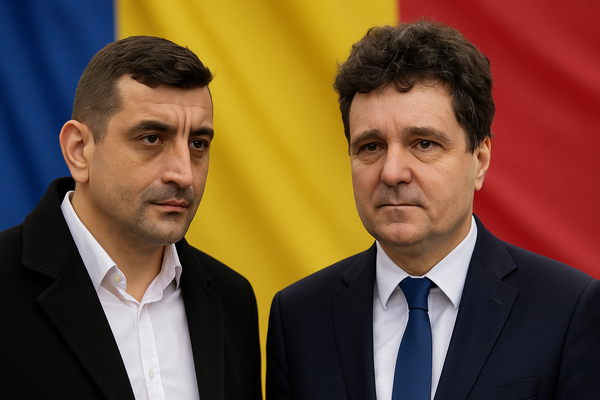
First they laughed off George Simion as a fringe agitator. Now, with a commanding first-round lead behind him, the ultranationalist is one step away from Romania’s presidency. His opponent on 18 May, Bucharest Mayor Nicusor Dan, is racing to unite the fractured political centre to stop him. Romania'
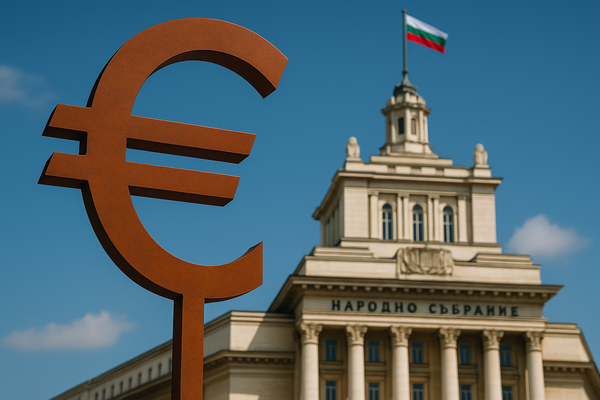
Bulgaria’s pro-European opposition has tabled a declaration committing the country to join the Eurozone on 1 January 2026, challenging the government to reaffirm its commitment to its deadline, amid suggestions of a referendum on the issue. The We Continue the Change-Democratic Bulgaria (PP-DB) coalition, called for Parliament to restate
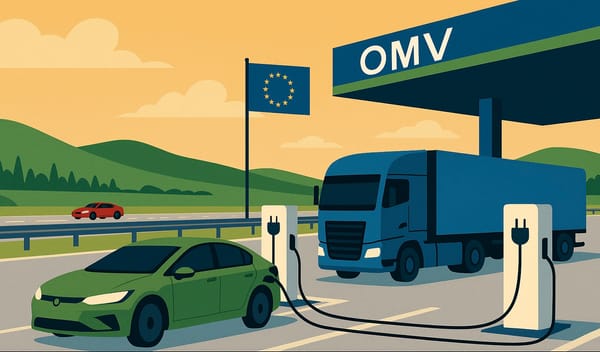
In a new step in the cleaner transport transition, OMV Petrom has inaugurated Romania's largest electric vehicle (EV) hub with 34 charging points of up to 400kW on the A1 motorway near Miercurea Sibiului, central Romania. The site is located on the Rhine-Danube Corridor - one of Romania’

The Security Service of Ukraine (SBU) has arrested two Ukrainian military veterans in Zakarpattia, west Ukraine, on suspicion of high treason, it announced on Friday, 9 May. Ukrainian authorities claim Hungary was collecting sensitive military data with an eye on a possible future incursion into western Ukraine. The SBU said
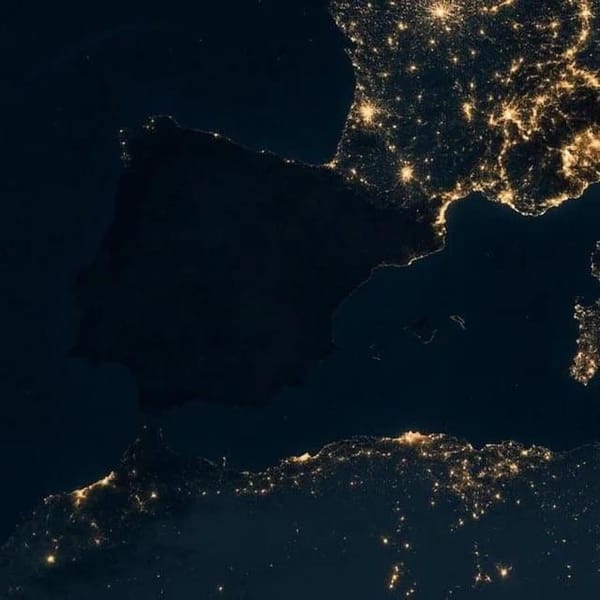
Hungary currently leads the world for share of solar energy in its energy mix, as it generated a quarter of its domestic electricity from photovoltaic panels in 2024. However, the recent massive blackout in Spain and Portugal served as a reminder of the challenges involved with high reliance on renewable

Albanian Prime Minister Edi Rama has claimed victory in Albania’s parliamentary election on Sunday, 11 May, after exit polls showed his Socialist Party (PS) with a clear lead. The vote, which has been characterised as ballot on Albania’s commitment to EU accession, was marked by low turnout and

Estonia has surged to second place in the 2025 World Press Freedom Index, its best-ever result and the highest ranking among EU countries. Estonia's ranking in the 2025 World Press Freedom Index is the highest ever achieved by a Central and Eastern European (CEE) country since the index&

Czechia has halted imports of Russian crude oil delivered via the Druzhba pipelinefor the first time in 60 years, Czech Prime Minister Petr Fiala announced in mid-April. The milestone was enabled by the expansion of the Transalpine Pipeline (TAL), which connects the Italian port of Trieste to Austria and Germany,

Far-right leader George Simion surged to a clear lead in the first round of Romania’s presidential election rerun, taking 40.9% of the vote ahead of the 18 May runoff that could reshape the country’s entire political trajectory. Simion, leader of the ultranationalist Alliance for the Union of
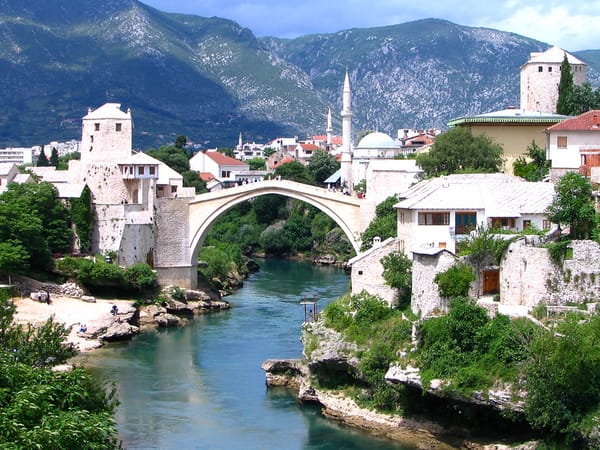
The EU can formally begin accession negotiations with Bosnia and Herzegovina (BiH) when a stable and pro-European coalition has been formed, according to Christian Schmidt, the international high representative overseeing the implementation of the Dayton Peace Agreement. The Dayton accords were signed in 1995 and ended the Bosnian War. The
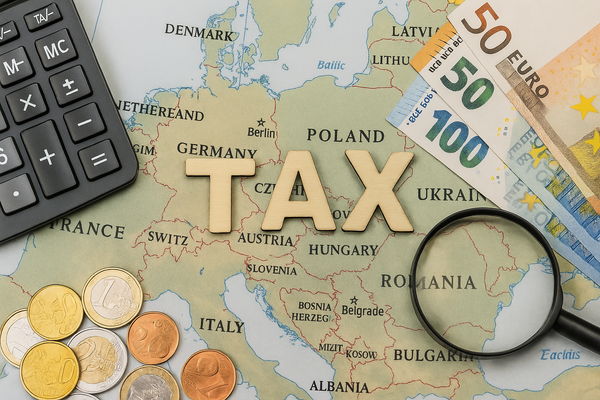
Workers in Central and Eastern Europe (CEE) enjoy some of the lowest personal income tax rates in Europe, with Slovakia and Poland the outliers for individuals and families, according to a new Organisation for Economic Co-operation and Development (OECD) report. The OECD Taxing Wages 2025 report analysed tax data and
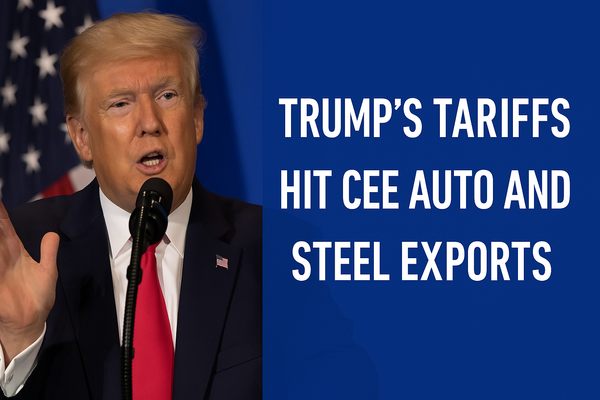
US President Donald Trump’s new raft of global tariffs threatens to hammer the export-driven economies of Central and Eastern Europe (CEE), with his 25% duty on foreign-made cars posing a direct risk to regional manufacturing. As highly integrated suppliers in Germany-led EU value chains, Slovakia, Hungary and Czechia are
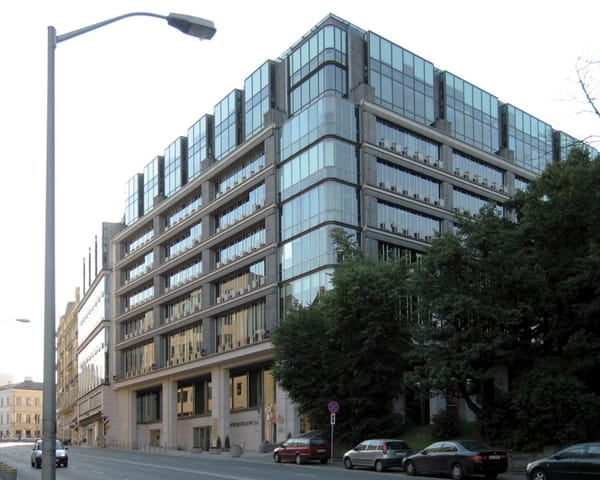
Poland’s main stock market index, the Warsaw Stock Exchange (WIG), closed above 100,000 points for the first time this week, signalling a milestone for the bourse, stronger investor confidence and Poland’s growing regional influence. Warsaw Stock Exchange CEO Marek Dietl said in an interview with PAP Biznes:

Poland has launched a new national doctrine aimed at establishing the country as the dominant military and economic power in Central and Eastern Europe (CEE). Polish Prime Minister Donald Tusk announced the "Piast Doctrine" during a speech in Gniezno, central Poland. "Maybe today it is worth announcing
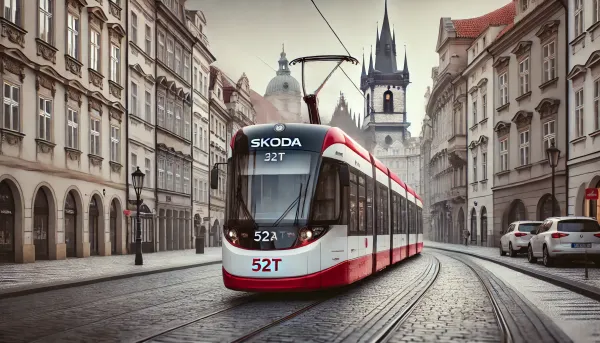
Prague has launched two major transport infrastructure projects, expanding Vaclav Havel Airport and introducing a new generation of trams to modernise its urban network. The initiatives form part of a broader strategy to boost Prague’s competitiveness as a Central and Eastern Europe (CEE) hub for air travel, freight logistics

The Baltic states are stepping up their air, missile and drone defence capabilities, as Estonia, Latvia and Lithuania invest in new systems to address growing security threats in Central and Eastern Europe (CEE). The acceleration of defence-related investments in the Baltic region comes amid heightened concerns about Russian military activity

The EU’s employment rate reached a record high of 70.9% in the fourth quarter of 2024, according to the Organisation for Economic Co-operation and Development (OECD). But while this marks a major milestone for the bloc, the picture in Central and Eastern Europe (CEE) is more complex, as

Greece has announced plans to repay its first bailout loans a decade ahead of schedule, in a move that officials say underscores the country’s economic recovery and new fiscal credibility. The repayment strategy would see Greece pay off the remaining EUR 31bn of its initial EUR 53bn in bailout
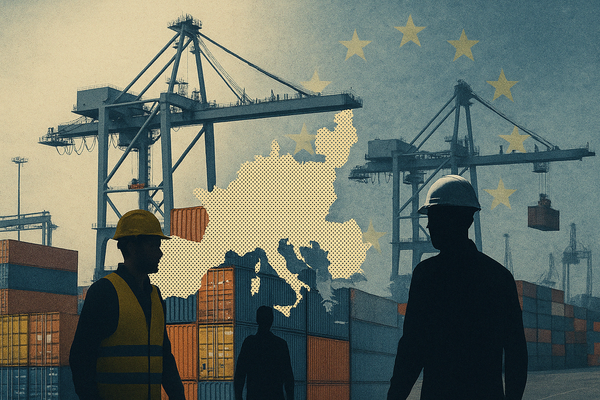
Despite their export-driven economies and strong manufacturing bases, Central and Eastern Europe (CEE) countries may be more resilient to global trade tensions from US tariff policies, than previously assumed, ING bank writes in a new report. Economies have shown resilience - ING While CEE's close ties with Germany
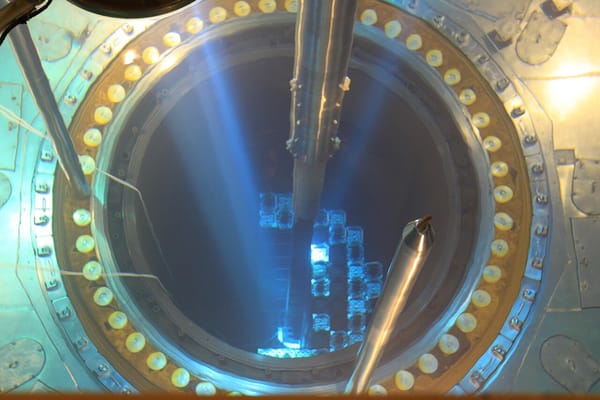
Slovenia is at the centre of a strategic struggle between France and the US, as both nations seek to secure a contract to build the Krsko 2 nuclear reactor. The estimated EUR 11bn project aims to bolster energy security across Central and Eastern Europe (CEE) and align with Slovenia'
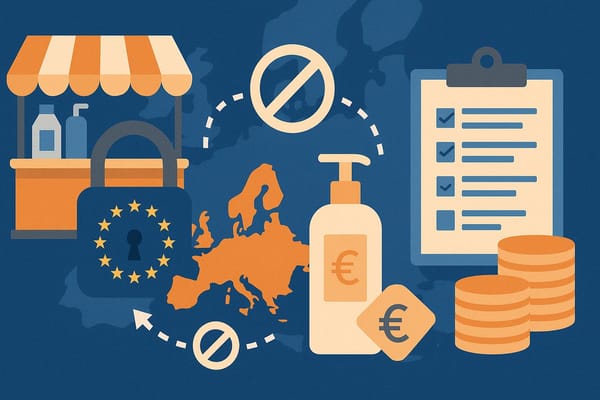
The EU’s internal market is still falling short of its founding promise. Despite decades of integration, consumers across member states face uneven product quality and varied prices. This is due to regulatory fragmentation in two main forms: Territorial Supply Constraints and gold-plating. TSCs occur when suppliers block cross-border sourcing
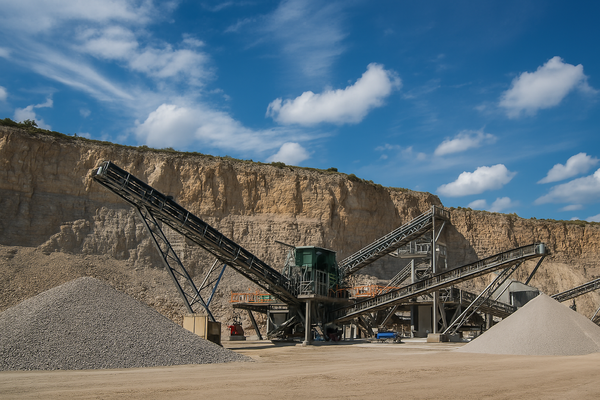
The European Commission (EC) has chosen 47 strategic projects across the EU to reduce critical raw material dependency, with Czechia, Estonia, Poland, and Romania at the forefront, marking a significant boost to regional competitiveness amid intensifying geopolitical tensions. The EC’s selections are critical to the industrial future of Central

An outbreak of foot-and-mouth disease (FMD) has prompted mass animal culls and tightened border controls across Central and Eastern Europe (CEE). The breakout represents the first significant detection of FMD in Hungary and Slovakia in over five decades. Since Hungary confirmed its first case at a dairy farm in Gyor-Moson-Sopron
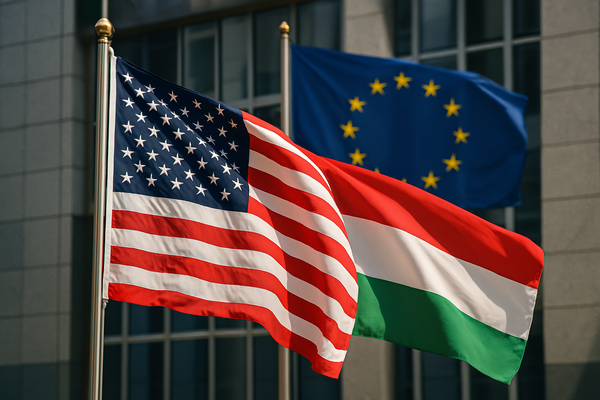
Hungary has broken ranks with the EU in response to the US's new tariffs policy, as Hungarian Prime Minister Viktor Orban seeks to preserve close ties with the Trump administration amid the resultant trade tensions. Hungary pushes back on retaliatory tariffs The EU confirmed on 9 April that
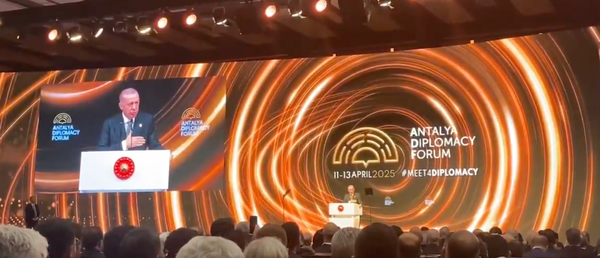
Attendees from Central and Eastern Europe (CEE) nations including Bulgaria, Hungary, Romania, Poland, Czechia, Slovakia, Moldova and others discussed policy priorities at the Antalya Diplomacy Forum in south west Turkey on 11-13 April. The forum's theme "Reclaiming Diplomacy in a Fragmented World" set the tone for